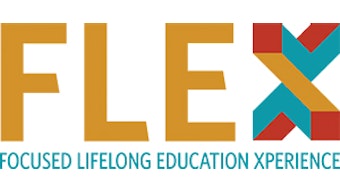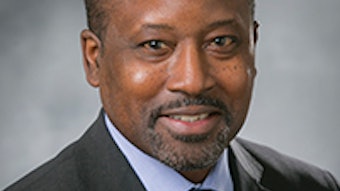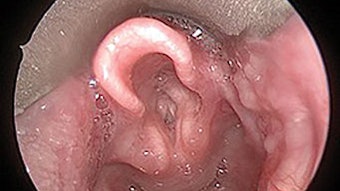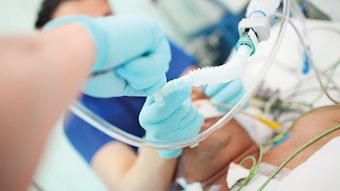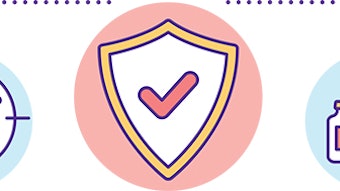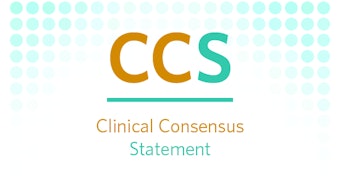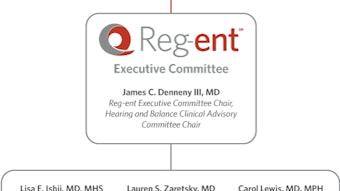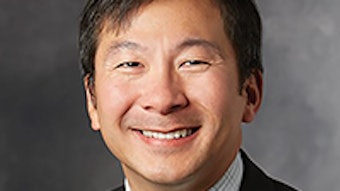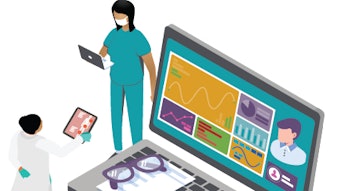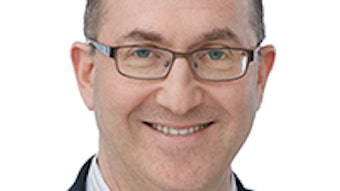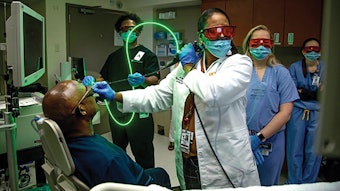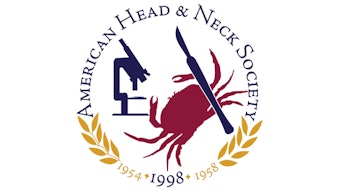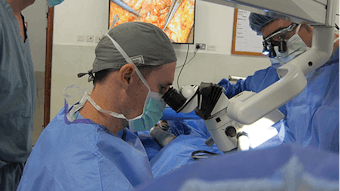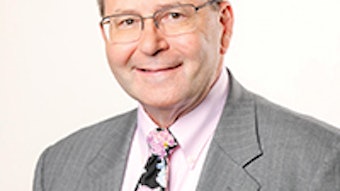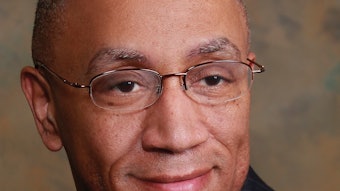Resident Spotlight: Arvind K. Badhey, MD, PGY5, Icahn School of Medicine at Mt. Sinai in New York City
I started my chief rotation at Elmhurst Hospital Center in Queens, NY, with three coresidents. Soon after, news vans, agency nurses, and patients swarmed to the aptly labeled “epicenter of the epicenter,” COVID-19’s new New York City home. In contrast to our ER colleagues, we had a choice of whether to wait for ENT to be called upon or to volunteer.

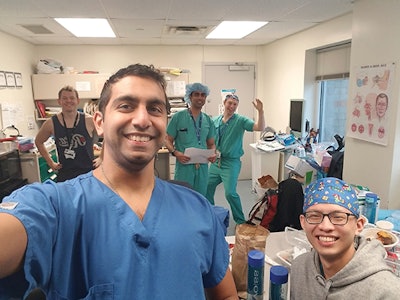 Left to right: Peter Filip, PGY3; Arvind Badhey, PGY5; Usmaan Basharat, PGY1; Benjamin Laitman, PGY2; Caleb Fan, PGY2
Left to right: Peter Filip, PGY3; Arvind Badhey, PGY5; Usmaan Basharat, PGY1; Benjamin Laitman, PGY2; Caleb Fan, PGY2I started my chief rotation at Elmhurst Hospital Center in Queens, NY, with three coresidents. Soon after, news vans, agency nurses, and patients swarmed to the aptly labeled “epicenter of the epicenter,” COVID-19’s new New York City home. In contrast to our ER colleagues, we had a choice of whether to wait for ENT to be called upon or to volunteer. We volunteered as a team of 12 residents to staff an overflow ICU that would come to be known as the “ENT COVID ICU.”
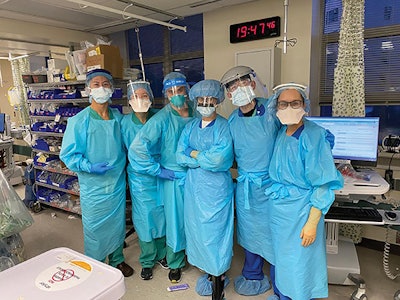 Left to right: Kevin Wong, PGY2; Christine Barron, PGY2; Doug Worrall, PGY5; Jaclyn Klimczak, PGY4; Eli Kinberg, PGY3; Noel Phan, PGY2
Left to right: Kevin Wong, PGY2; Christine Barron, PGY2; Doug Worrall, PGY5; Jaclyn Klimczak, PGY4; Eli Kinberg, PGY3; Noel Phan, PGY2As surgical trainees, we’re used to learning on the job and embodying the mantra “you don’t know what you don’t know.” While we were prepared for uncertainty to be the new normal, one thing we were not prepared for was how much fear would become an integral part of our lives. We never expected to be saving lives while fearing for our own. Every day I was scared, not only of this deadly virus, but also that I would never recover from the trauma I was seeing.
COVID-19 is a deadly disease. One of the most painful things about working in the ICU is that, regardless of what we did, patients’ outcomes and prognoses were poor. While we have all cared for sick patients during residency, I’ve witnessed more death in the past month than in all of residency combined.
Our team channeled our fears, anxiety, and feelings of helplessness into becoming a bridge between our patients and their families. We made sure that the families knew that in those final moments, their mother, father, brother, or sister was not alone. If, in the future, subspecialists are debating whether or not to volunteer, I hope they think of my patients. While many of them didn’t survive, had it not been for our team, they would have died in an overwhelmed system—alone.
If all we did was help families say goodbye, it was worth it.

Hear more from this group of ENT Residents who volunteered to provide care as a COVID-19 surge ICU team at Elmhurst Hospital Center in New York City. Their selflessness and willingness to volunteer beyond the call of duty when needed exemplifies what “We Are One” means to all of us, even beyond the specialty. The Academy salutes them and all our colleagues helping to do their part during this challenging time.
In this podcast, David M. Cognetti, MD, Associate Professor and Co-Director, Thomas Jefferson University Center for Head and Neck Surgery in Philadelphia, PA, is joined by Arvind K. Badhey, MD, a PGY5 ENT Resident at the Icahn School of Medicine at Mt. Sinai in New York City and one of his colleagues, Usmaan Basharat, MD, an ENT intern in the same program to discuss their unique and challenging experiences on the frontlines as part of a group of ENT residents volunteering at Elmhurst Hospital Center in Queens, NY, on COVID-19 surge ICU team in one of the “epicenters of the epicenter” in the United States.
The podcast is also offered in a video version. Find both at https://www.entnet.org/content/covid-19-podcast-series.
